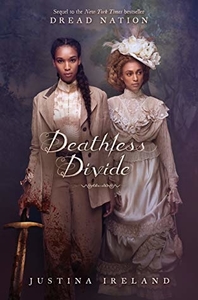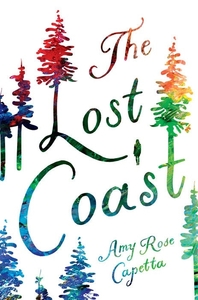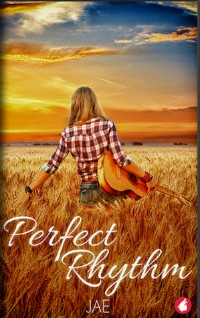I really enjoyed Justina Ireland’s Dread Nation, and it is on my rec shortlist when people want fantasy or YA recs. So when I walked by the sequel in stores I was incredibly excited at A) the fact that it was out and B) how amazing the cover is. The complete drama of those outfits with the understated blood splatter is everything I wanted. Black heroines looking fancy? Black heroines looking so fancy while still fighting zombies? The amazing cut of Jane’s suit and blouse and her intimidatingly direct stare? I love every single thing about it. Of course, between wanting to reread Dread Nation so I could remember every detail and library hold lists and just everything else that has happened this year, it took me longer than planned to get ahold of the audiobook, but I am so happy I finally did, and that I get to review it right after reviewing Dread Nation.
In Deathless Divide, Justina Ireland picks up exactly where Dread Nation left off: with Jane, Kate, and a group of miscellaneous other people they’ve accumulated escaping the doomed town of Summerland ahead of a horde of zombies. In possession of a letter that says that her mother is no longer at Rose Hill plantation but is instead headed for California, Jane wants to head that way to find her, but lack of supplies and the needs of the civilians with them force them to head for the nearby town of Nicodemus. There they are reunited with past acquaintances and have to convince the people of their temporary home that the town’s defenses will not stand against the oncoming horde in a frightening echo of their time in Summerland. The ending of Nicodemus, like Summerland, is catastrophic for everyone there, and Ireland uses its demise as a point for a time jump that has both Jane and Kate trying to make new lives for themselves in California, but separated from each other and facing terrible hardship and prejudice once again. Between proper Kate struggling to find a place for herself where she feels fulfilled and vengeance-obsessed Jane making a name for herself but being unable to rest, Ireland highlights a full range of experiences and difficult choices they face as Black women trying to survive in country filled with racism, misogyny, and, of course, zombies.
The choice between love and vengeance is a pretty standard one in literature, but Ireland explores the whole spectrum of love that can drive people. From family – where Jane’s memories of her mother are part of what drives her to keep moving and her subsequent grappling with how memory doesn’t match reality – to friendship – Jane and Katherine are continually motivated by the friendship they’ve forged through shared tribulations – Jane and Kate struggle to make sense of the world where they find themselves and what they want out of life. Romance gets a full treatment too, even though it isn’t the main focus. Kate is asexual, and her musings on whether she should try to stomach getting married for the benefits it would provide for her and others, as well as her remembering how trapped she felt as a youth when she thought it was her only option, were poignant and incredibly emotional for me. Kate’s journey is about her finding what makes her thrive in life while struggling with how that doesn’t line up with society’s expectations, and I think it is an incredibly great arc to see in what is ostensibly a historical horror/thriller.
Jane, on the other hand, has to deal with the price of vengeance versus what she wants out of life outside of it. She has some brushes with romance – honestly her relationship with Callie was refreshing both in that it was queer and that she accepted its short-term nature with a foray into heartache that is quickly tempered by pragmatism, something lacking in a lot of YA – but her real motivation for much of the time is getting vengeance on Gideon, the scientist whose experiments have killed a lot of people Jane cared for and irrevocably changed her own life. Becoming a bounty hunter in order to gather information to track him down, Jane enters a brutal world and becomes equally as brutal herself to survive. Over and over again she is forced to choose pursuing vengeance at the cost of her relationships with others, and every time she chooses vengeance she can feel the toll it takes on her soul. It was refreshing to see a character who could admit to her changing attitude and frankly start to wonder if it was all worth it or what would be left after she accomplished her goal. On top of that she has to deal with how the world perceives her. While Kate has to deal with the physiological ramifications of being white passing and of being attractive to men when she is not attracted to them herself, Jane has to deal with her reputation. Her nickname – The Devil’s Bitch – manages to be both threatening and derogatory, and she is forced to be aggressive when dealing with the rest of the world and face the reactions to an aggressive Black woman who doesn’t hesitate to use violence to protect herself. Her emotional journey through grief and vengeance to something more peaceful feels entirely earned and not any sort of magic switch moment, and I felt like the ending was satisfying and was something entirely true to the growing they all did throughout the book.
In Deathless Divide, Justina Ireland continues her fascinating story of life in a post-Civil War, post-zombie apocalypse America. I thought this continued the first book extremely well, and I really enjoyed how the characters stayed true to themselves. It would have been really easy for the vengeance quest or their constant journeying to become flat, but each character really grew and had a lot of great introspective moments. Jane and Kate’s wildly differing worldviews contrasted well, and I really enjoyed the casual queerness and asexuality rep. Whether you’re here for the zombies or for queer action women with swords, it’s a very satisfying story. I also highly recommend the audiobook version. Bahni Turpin and Jordan Cobb are amazing narrators, and I was really pulled into the story and the rotating POVs so well.





